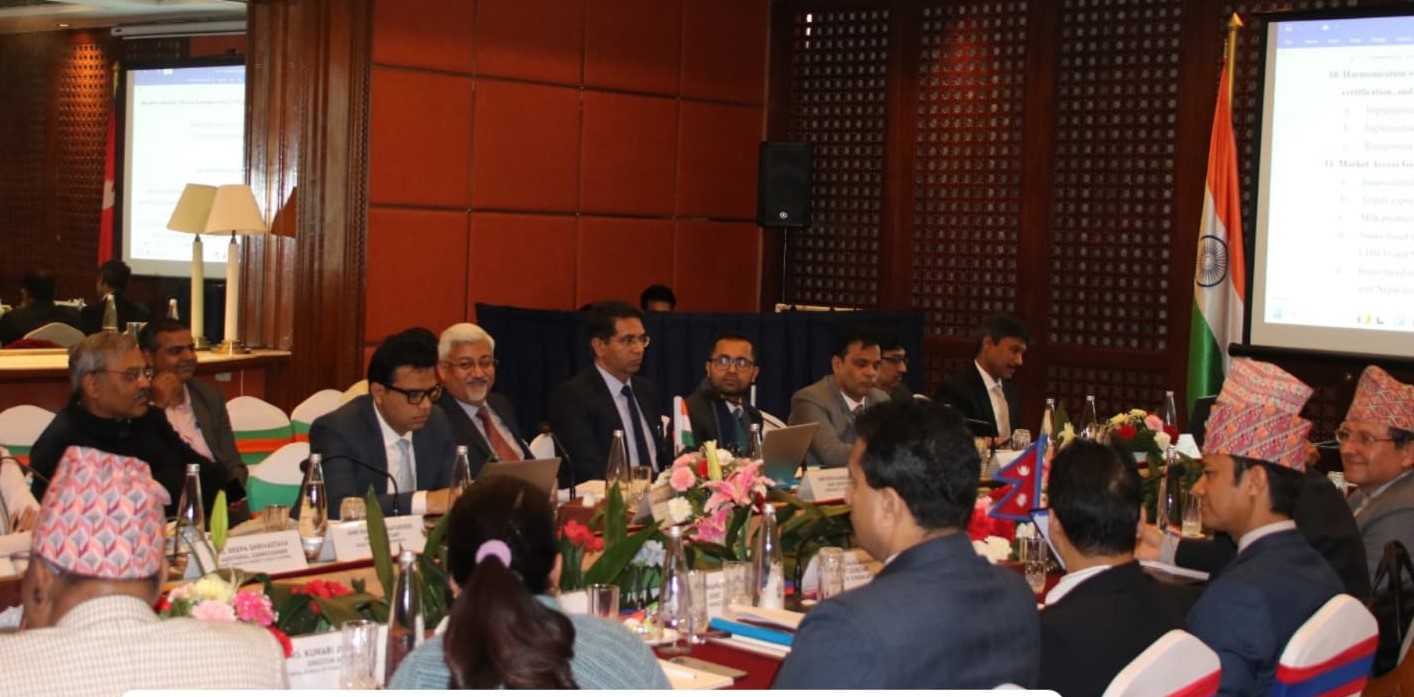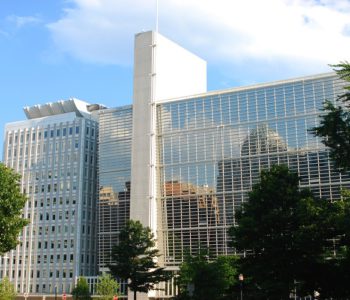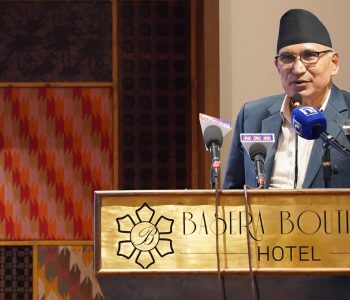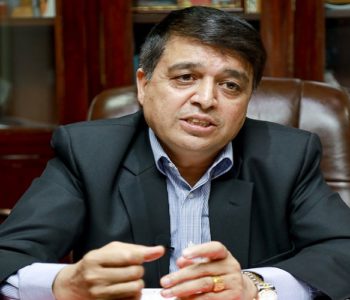Nepal, India forge stronger trade and transit cooperation in Kathmandu talks

KATHMANDU: The Nepal-India Inter-Governmental Committee (IGC) on Trade, Transit, and Cooperation to Combat Unauthorised Trade concluded its significant meeting in Kathmandu on January 10-11. This bilateral dialogue, aimed at strengthening economic and trade relations, brought together high-ranking officials from both countries to discuss pressing issues and forge solutions for mutual growth.
The Indian delegation was led by Shri Sunil Barthwal, Commerce Secretary of India’s Ministry of Commerce, who was accompanied by senior officials from various ministries and the Indian Embassy in Kathmandu. On the Nepali side, Mr. Gobinda Bahadur Karkee, Secretary of Nepal’s Ministry of Industry, Commerce, and Supplies, led the delegation, which included representatives from multiple Nepali ministries and departments.
The meeting provided an essential platform for both nations to engage in a comprehensive review of their bilateral trade and economic relationship. One of the main focuses of the discussions was the review of market access challenges, intellectual property rights (IPR) issues, and customs duties, all of which play a critical role in improving cross-border trade.
Both sides also explored potential amendments to key agreements such as the Treaty of Transit and the Treaty of Trade to reflect the evolving trade realities and to promote smoother commerce between the countries. The harmonization of standards and the synchronized development of trade infrastructure were also on the table, with particular emphasis on the electrification of the Raxaul-Birgunj rail line, an initiative that aims to enhance the efficiency and sustainability of trade flows between India and Nepal.
In a notable development, the Indian delegation confirmed the approval of Nepal’s request for 200,000 metric tons of wheat, a critical commodity for Nepal’s food security. Nepal expressed its gratitude for India’s continued support in securing essential supplies, underlining the importance of such bilateral cooperation for the well-being of the Nepali people.
Furthermore, the Indian side agreed to extend its axle weight regulations to Nepali vehicles on the Kakarbhitta-Banglabandha route, easing the flow of cargo transit between Nepal, India, and Bangladesh. These discussions reflect a shared commitment to enhancing the trade infrastructure that binds the two countries.
India also agreed to include Sal Seeds and Chayote in its Plant Quarantine Order, a decision that will positively impact Nepal’s agricultural exports. Additionally, India accepted Nepal’s request to include several plant extracts, such as Jatamasi root extract and Sugandhkokila berry extracts, in its list of processed plant products. These moves are expected to facilitate smoother trade in agricultural and plant-based products, further enhancing the bilateral trade ecosystem between the two nations.
However, the meeting also highlighted some ongoing challenges. The Indian delegation raised concerns over milk exports to Nepal, particularly regarding products like whey and cheese, which are not sufficiently produced in Nepal. In response, Nepal showed openness to reviewing the technical documentation related to the reclassification of certain products like EPAQUE and POLYHIDE 28 in their systems. This ongoing dialogue reflects the mutual desire of both countries to resolve trade barriers and ensure that their respective markets remain accessible and efficient.
Moreover, the two sides expressed their firm commitment to improving cross-border connectivity, an area that is central to the vision of prosperous bilateral trade. Both countries welcomed the construction of new Integrated Check Posts and the development of new railway links, which will streamline logistics and reduce delays in trade. A Joint Working Group will be formed to discuss the acceptance of Online Certificates of Origin (CoO) under the South Asian Free Trade Area (SAFTA) agreement, a move designed to modernize and simplify trade processes.
On the sidelines of the IGC meeting, the second edition of the Joint Business Forum was held on January 11, 2025, co-hosted by the Confederation of Indian Industries (CII) and the Federation of Nepalese Chambers of Commerce and Industry (FNCCI).
Senthil Kumar of Indian Oil Corporation and Ms. Bhawani Rana, a member of Nepal’s Investment Board, provided a valuable opportunity for businesses on both sides to share suggestions and insights aimed at improving the ease of doing business and boosting trade and investment opportunities. The discussions centered around practical solutions to enhance bilateral economic cooperation and create a more business-friendly environment.
As both sides continue to work on addressing trade barriers, enhancing connectivity, and fostering investment, the future of Nepal-India trade looks increasingly promising. The two countries are clearly determined to pave the way for even greater cooperation, ensuring that their shared vision of a prosperous bilateral trade ecosystem becomes a reality.













Facebook Comment